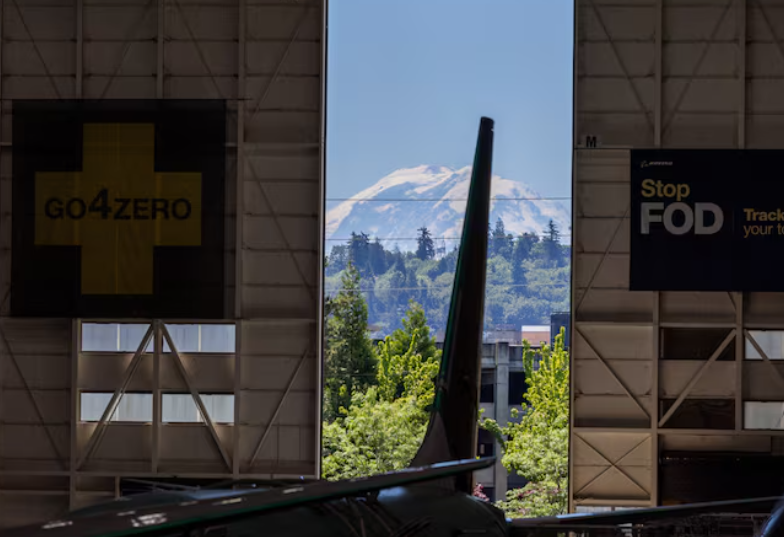The U.S. Justice Department will charge Boeing with fraud over two fatal crashes and demand that the planemaker plead guilty or face a trial, according to people familiar with the matter. Boeing must respond to a plea deal offer from the Justice Department by the end of the week. Accepting the deal would allow the company to avoid a courtroom battle with federal prosecutors, though it might still complicate its efforts to recover from a crisis triggered by the January 5 mid-flight panel blowout on an Alaska Airlines-operated flight.
The proposed deal follows a Justice Department finding in May that Boeing breached a 2021 agreement, which had shielded it from prosecution over fatal crashes in 2018 and 2019 that killed 346 people.
In 2021, the Justice Department agreed to withhold prosecution of Boeing and ultimately ask a judge to dismiss a charge of conspiring to defraud the U.S. Federal Aviation Administration (FAA), provided that Boeing abided by the deal’s terms over three years. Boeing agreed to overhaul its compliance practices to prevent violations of U.S. fraud laws and submit regular reports. However, the January mid-flight emergency occurred two days before the agreement expired. Boeing has told prosecutors that it disagrees with their finding and insists it “honored the terms” of the settlement.
Justice Department officials will give Boeing until the end of the week to respond to the nonnegotiable offer, Reuters reported. If Boeing refuses, prosecutors plan to take the company to trial. A courtroom battle would carry risks for both sides. Prosecutors would need to prove that Boeing conspired to defraud the FAA about the flight system, despite a 2022 jury acquitting a Boeing pilot of related charges. Companies usually avoid going to trial because a conviction could lead to harsher penalties, and lengthy court procedures would prolong uncertainty for Boeing’s investors, suppliers, and employees.
If Boeing pleads guilty, a felony conviction could disrupt its ability to secure government contracts, such as those with the U.S. military, which comprise a significant portion of its revenue. “In the world of government contracting, an indictment or finding of criminal liability can have a significant impact on a company,” said Franklin Turner, a government contracts lawyer at McCarter & English. Boeing could seek waivers from government departments and agencies to continue contracting with them. Some previous Justice Department settlements have outlined how officials should address this issue. It remains unclear to what extent the proposed Boeing plea deal does.
If the plea offer does not address it, government officials at each department or agency would have to decide whether Boeing, as a convicted felon, qualifies for a waiver, said Vikramaditya Khanna, a law professor at the University of Michigan. The proposed agreement includes a $487.2 million financial penalty, with Boeing needing to pay about half of that amount since the government would credit it for previous penalties. Boeing would likely have to pay restitution, an amount to be decided by a judge. The company already paid $2.5 billion in penalties and restitution in 2021 for the original conspiracy charge, which included a criminal penalty and compensation for customers and crash victims’ relatives.
The plea offer includes placing Boeing on probation for three years and requiring its board to meet with victims’ family members, Reuters reported. The proposed plea deal also includes appointing an independent monitor to audit Boeing’s safety and compliance practices for three years. The Justice Department under President Joe Biden has renewed the use of corporate monitors in its deals with companies to resolve charges of misconduct, a practice that had fallen out of favor under the previous administration. Companies typically resist these terms as the outside firms, selected by the DOJ, act as the government’s eyes and ears, with the company footing the bill.
The plea would not resolve or provide immunity to the company for any other conduct, including the January 5 incident.

